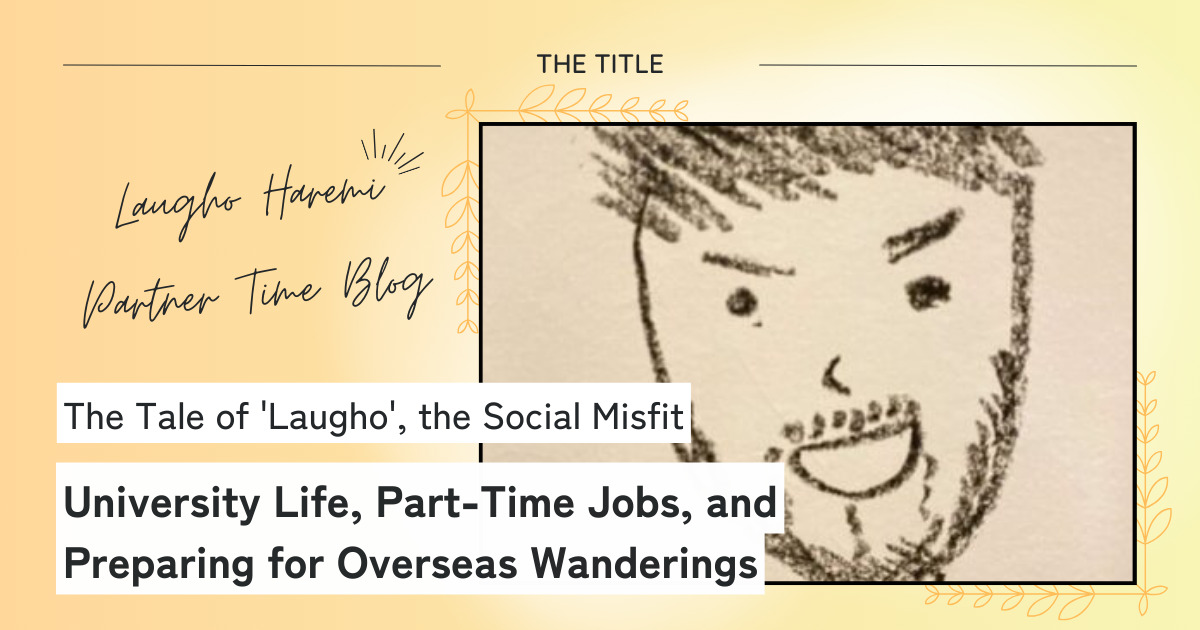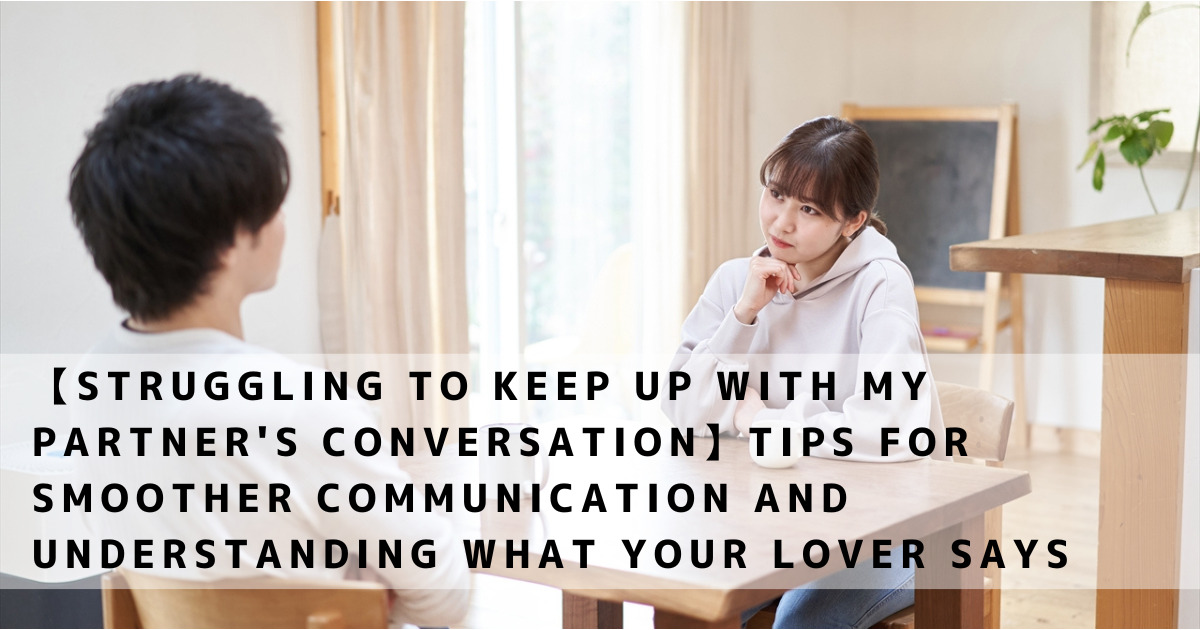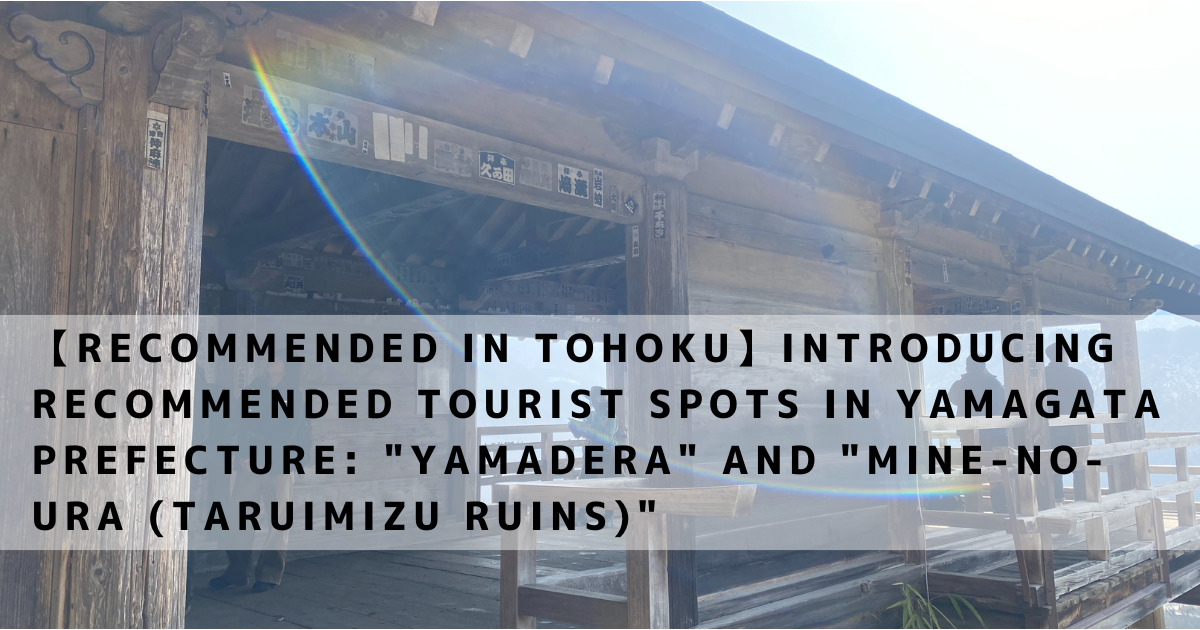 Laugho
LaughoHello! It’s Laugho here!
I’m now in my 30s and recently, I feel like my career is finally on track.
I’ve been reflecting a bit on my life up until now.
It all started when an acquaintance said to me, “It’s surprising you’ve made it this far, haha.”
Perhaps it’s because I’ve led a somewhat unusual life…
Since the number of people reading my blog has been increasing, I thought I’d take a moment to introduce a bit about my journey so far.
Elementary School Days | Becoming a School Refuser and a Shut-In.
I couldn’t understand why we had to write in our notebooks what the teacher wrote on the blackboard during class.
The elementary school I attended had about 30 students in each class, and I sat at the very back.
A typical scene was during lessons, where students would often write in their notebooks what the teacher wrote on the blackboard.
I just couldn’t get it, lol.
“I don’t see the point of copying what’s written in the textbook into a notebook. And if it’s something not in the textbook, why not have one student write it down and then everyone else can just make copies?” was my reasoning.
The teacher would periodically check our notebooks, and I imagine they were quite shocked when they saw mine.
It was mostly blank, after all, lol.
I was definitely in for a lecture after being called out.
I must have been a really difficult student to deal with.
Back then, apart from studying, I absolutely despised the idea that I had to do exactly as the teacher said, just like everyone else.
I felt out of place in class. While I had friends who were nice to me, there were also some who bullied me a bit.
The reasons for attending school became more and more unclear to me, and I would make every effort to avoid going by pretending to be sick or finding some other excuse.
I believe my parents genuinely wanted to find a way to get me to school.
There were times when they practically forced me to go, and even instances where my dad took my school bag and me outside, then locked the door behind us, lol.
Escaping from school during lunch break.
One day, after lunch, I was playing in the schoolyard during recess.
When the bell rang and the other students began returning to their classrooms, I just couldn’t bear the thought of going back, so I ran away from the school.
At first, I hid close to the school. But soon, I could see several teachers coming out of the school gate and starting to look for me.
The feelings of “I don’t want to get caught” and “I want to cause them some trouble” both surged within me, leading me to think about going somewhere far away.
But being a grade-schooler, I didn’t have any money on me, so I pondered where to go.
What came to mind was the house where my grandparents used to live, which was about 10 km away.
By that time, my grandparents had moved out, leaving the house vacant. But I loved that house dearly and felt a strong urge to go there.
I moved stealthily to avoid being spotted by the searching teachers.
“It feels like I’m on an adventure; it’s fun.”
After walking for about two hours, I finally arrived.
The house was locked, so I couldn’t get inside. I sat down in a “seiza” position (a traditional Japanese sitting posture) in front of the house, wondering what to do next.
I don’t remember how much time passed, but at some point, I saw a neighborhood lady running towards my grandparents’ house.
“Laugh!?”
This lady ran a small individual shop, and back when my grandparents still lived there, she’d often accompany me on shopping trips and dote on me.
“I got a call from your grandma, saying you might be here… Your grandma also contacted your home, and now your dad is on his way to pick you up.”
Grandma sure is something…
At the same time, I felt a bit relieved.
To be honest, even though I’d enjoyed escaping from school and felt like I was on an adventure, I was also feeling anxious about what would happen next. So, the thought “I’m glad I was found” crossed my mind.
It’s funny how just moments ago, I was thinking, “I don’t want to get caught” and “It’s fun like I’m on an adventure.”
Perhaps my parents felt that they just had to accept the situation as it was, and they allowed me not to attend school.
Honestly, I don’t have many vivid memories from that time.
One thing I clearly remember is the sheer boredom due to not attending school.
Another distinct memory is of watching Dragon Ball movies. Back then, we had VHS tapes. I would watch a movie, then rewind it, and watch the same movie again. This cycle continued countless times.
I don’t really know why I did that; it’s not like I was particularly eager to watch them over and over.
But having watched them so frequently, I naturally memorized the plot and could even recall the exact dialogues.
It was, in many ways, the most distressing period for me.
Yet, I felt compelled to do it.
I also remember my parents taking me places.
However, I can’t quite recall where they took me.
That was pretty much how my life was at that time.
I was a bit of an unusual truant and shut-in.
Just before I stopped attending school, I had joined a youth sports club’s basketball team.
Even after I stopped going to school, I continued to play basketball.
Students from the same school would ask me, “Why do you come only for basketball and not school?” However, the coaches and the team manager understood my situation, and thus, the concept of a “shut-in from school but active in the basketball team” came into being.
Well, I was always on the bench, though. (laughs)
Looking back now, the term “shut-in” was just starting to be recognized, and in an era where attending school was the norm, I realize that many people understood and supported me.
Middle School Years|Utilizing a Facility for Shut-ins and My Parents’ Divorce.
By using the facility, I began to understand myself better.
Upon entering middle school, I thought I might be able to attend school again.
However, I still couldn’t find the meaning in studying, and I struggled with group activities. As a result, I quickly fell back into truancy.
After that, I entered a facility that supports those who are hikikomori (socially withdrawn) and truants.
There, I met others who, like me, found it challenging to go to school or participate in society. Being around them, I felt a little relieved, as if it wasn’t just me who was “strange” for not going to school.
The facility didn’t impose tasks on us, saying “do this” or “do that”. Instead, it was a place where we could explore and do things that piqued our interest.
I tried out various activities that caught even a slight interest, and I realized for the first time that when I am genuinely interested in something, I can immerse myself in it deeply.
But there were problems at the facility as well.
My father was the type to get physical when he got angry. When I was shut-in, the person closest to me was my parent, so I believed it was okay to resort to violence when things didn’t go my way.
Every time there was an issue, the staff at the facility would sit down with me and talk. Gradually, I learned to communicate using words.
My father severely beat my mother, leading to their divorce.
It was a little while after I started using the facility.
Due to a change in his work department and the stress from unfamiliar tasks, my father lost his temper over something my mother said. He unleashed violence on her more severely than ever before.
My mother took my younger brother and me and left the house immediately.
That led directly to their divorce.
My mother, younger brother, and I started a new life together.
Until then, my mother had been a full-time homemaker, raising my brother and me. Now she began working again.
Having a gap of almost ten years in her work history, I believe it must have been quite tough for her.
However, being in middle school at the time, I couldn’t fully understand the challenges she was facing.
The grandma who found me after I ran away from school taught me the importance of money.
There was an annual domestic travel event at the facility.
That year, it was a trip to Hokkaido by ferry, and the participation fee was 100,000 yen.
However, knowing that my parents had just divorced and we were short on money, I couldn’t bring myself to tell my mother.
I thought of getting a part-time job, but I was only 14 and couldn’t. Feeling that I might not be able to go, my mood was at its worst.
It was the first time in my life that I was confronted with the reality that there are things you can’t do without money.
When I was desperately wanting to go on the trip, I learned that the facility had a paid volunteer program.
By doing tasks requested by the facility, like weeding or helping with moving, you could earn a little money.
Though when I say “earn,” it was only about 2,000 to 3,000 yen for a full day’s work.
Even by the standards of the minimum wage at the time, this was considerably low.
But I really wanted to go, so I asked the staff at the facility to let me work as many days as possible, and I diligently saved every yen I earned.
Around that time, I started seeing my grandma and grandpa occasionally, after they had found me when I ran away from school.
When I told my grandma about wanting to go on the trip and how I was working hard with the paid volunteer program, she simply said, “I see… you’re doing your best.”
To be honest, I was kind of hoping they might offer to help pay for the trip.
Well, it wasn’t that easy, haha!
But since I was slowly saving up money from the paid volunteer work, I thought, “Well, it can’t be helped,” and continued with my daily tasks.
About a month before the trip, I finally managed to save up the target amount of 100,000 yen.
It took me about half a year to save that amount.
Given the small amount I was earning, it took quite some time.
However… this 100,000 yen was just for transportation and accommodation, and I didn’t have any money for enjoying activities or shopping in Hokkaido.
“That’s okay!”
I desperately wanted to go on this Hokkaido trip. Even without spending money, there are various ways to enjoy, and I believed I would make do.
I reported to my grandma that I had saved up the money.
I was incredibly happy about having saved up the money, so I think I was quite excited.
Then, grandma said,
“Use that money to enjoy yourself in Hokkaido. There’s nothing more important than money spent for experiences,” and handed me an envelope with 100,000 yen in it.
I didn’t think, “Lucky!!”
I believe it’s because I had been working for the trip through paid volunteer work and had deeply understood the value of money and the hardship of earning it.
I realized that the 100,000 yen grandma gave me was the money she and grandpa had worked hard to save.
The words she shared, “spend money for experiences”, became a significant guiding principle for me moving forward.
High School Years: Finding My Dream and Diving Deep into Studies.
To my surprise, I grew fond of studying, which I once detested so much.
“I don’t see the point in studying.”
I believe many people have felt this way at some point. The reasons often revolve around thoughts like, “What’s the purpose of studying?” or “Will it be useful when I step into the real world?”
However, after meeting a teacher who provided academic support at the facility, not only did I start to study, but I actually grew to love it. Funny, isn’t it?
The teacher roughly taught me:
“Studying isn’t something you have to do; it’s something to enjoy. History is the story of people, and knowledge is what people, who didn’t want to deal with complexity, came up with to make life simpler. If you know history, you can avoid repeating the mistakes of the past. If you have knowledge, it makes things easier, and life becomes more comfortable.”
And I was taught the importance of confronting the “why?” and “how come?” that arose within me.
“Passion vs. Money” Battle
Around the same time, there was a person named Mr. K who was using the facility.
He started attending the facility after becoming a recluse, but he quickly began studying with the intent of joining amajor corporation and earning a lot of income once he graduated from university.
On the other hand, I believed that what was essential for living was not money, but rather a sense of purpose.
While studying together, we got into an argument over the concepts of “purpose” and “money.”
During that, one thing Mr. K said that made me involuntarily think “That’s true” was:
“Don’t you have to earn money first to know which is better, purpose or money?”
At that moment, I brushed it off, saying, “That’s not true!” but deep down, I was convinced.
This conversation would later have a significant influence on how I approached work.
I’m genuinely grateful to Mr. K.
By the way, we still keep in touch and hang out regularly.
Dreaming of Traveling Abroad and Grandma’s Passing
After starting to study, I began to read books little by little.
Among them were books written by Ayumu Takahashi: “LOVE & FREE” and “Why Not Travel Around the World?”
Ayumu Takahashi’s books are reader-friendly, filled with photos from his actual travels and catchy phrases.
I had always been slightly interested in going abroad, but after reading these books, I felt inspired to travel myself.
Another catalyst was when I was watching a particular TV program. I don’t remember the details, but I clearly remember the visuals.
It showcased a certain impoverished country where children couldn’t even get proper meals. There were images of malnourished African children with protruding bellies, highlighting their daily life struggles.
In one of the scenes, an interviewer was speaking to a child wearing a tattered shirt. But what caught my eye was a man in the background, dressed in chinos and a buttoned shirt, talking on a mobile phone.
This juxtaposition raised questions in my mind.
Even in impoverished countries, I understood that there are both wealthy and poor people.
However, the way the TV portrayed it made it seem like the entire country lived in dire straits, suggesting that “the people of this country don’t even know if they’ll have food for the day.”
At that moment, I thought, “Perhaps there’s a different scene just beyond the edge of the TV screen.” I felt a strong desire to see that side of the story for myself.
And so, I decided that when I turned 20, I would set out on a journey.
I had just decided in my heart to go overseas when my grandmother told me she had something to discuss. I went to see her.
“I’ve been diagnosed with cancer, and it can’t be cured.”
My grandmother, who supported me when I stopped going to school and when my parents divorced, had been diagnosed with an incurable disease.
To be honest, I couldn’t feel anything when I heard those words.
Perhaps it’s more accurate to say I couldn’t comprehend it.
For some reason, the words that came out of my mouth were, “Grandma, I want to travel abroad!”
Grandma responded, “Live your life the way you want to. The experiences you’ve had up until now, and the ones you’ll have in the future, will surely be of use to someone. Do what you want to do.”
My grandmother passed away when I was 17.
After obtaining my high school equivalency diploma, I went on to college.
Having only completed middle school, I managed to pass the High School Equivalency Examination (an exam that certifies the academic ability equivalent to high school graduation) thanks to my learning support teacher and decided to go to college.
Given the short amount of time I had been studying, I lacked the necessary academic skills, so I put a lot of effort into my exam preparations.
Up until June, I studied at the learning support facility from 10 a.m. to around 9 p.m. After that, I attended cram school and studied from 8 a.m. until bedtime.
“I used to wonder, ‘What’s the point of studying?'” It’s something I could never have imagined thinking back then.
But I found joy in acquiring knowledge, and that kept me going.
Studying shouldn’t be something you have to do; it should be something you do because you want to.
There were times when I felt stuck in my studies.
At that time, due to circumstances, I was living at my grandparents’ house. My grandmother was in the hospital, and my grandfather was constantly by her side, caring for her. So, I was mostly alone at home.
My mother’s sister, my aunt, would regularly come over to cook for me.
Feeling frustrated and wanting some comfort, I told her, “Studying is so hard. Maybe I should quit.”
Instead of the expected words of encouragement like “I’m rooting for you, keep going,” she simply replied, “Then why don’t you quit?”
I had forgotten she’s my grandmother’s daughter. Classic Aunt.
But her words somehow gave me the motivation to persevere.
All the hard work paid off, and I managed to get into college.
My life as a student starts in April.
Next time: College Life and Wandering Abroad.
Writing about my journey from being a reclusive elementary school student to entering university has been quite a reflection. It makes me realize how I’ve been supported by numerous people throughout my life.
My father, mother, grandpa, grandma, aunt, the staff and teachers at the facility, and many others genuinely cared for me.
Though I didn’t touch upon it in this article, there were times when I struggled to connect with my parents. However, now our relationship has improved to the point where we can enjoy meals together.
In the next installment, I plan to write about my university life and the time I spent wandering abroad.
Thank you for reading up to this point.



If you follow me on social media, you’ll get notifications when new articles are posted!














